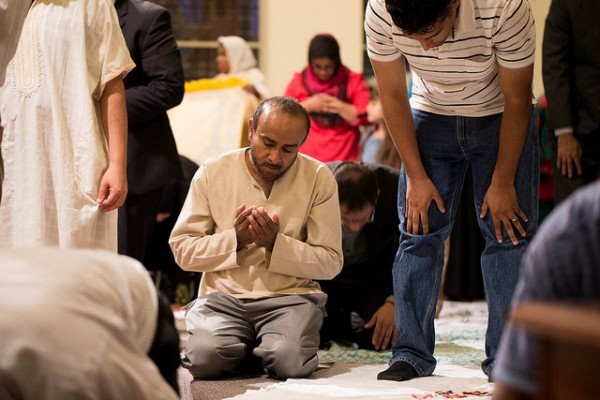
(Photo: Fort Meade/ Flickr)
For a South Jersey girl, my upbringing was markedly ordinary. I played soccer. I joined student council. I walked to my Sicilian grandmother’s house every day after school.
And just like everyone else in my small town of Hammonton, my summer revolved around blueberries — blueberry pie, blueberry canolis, even blueberry pizza. The blueberry season culminated in a Red, White, and Blueberry festival each July. I couldn’t make this up if I tried.
When I got a little older, playtime with my cousins turned into bussing tables with my sisters at my family’s small Italian restaurant. But after the 9/11 attacks, something else changed for me, too.
I was part of the only Muslim American family in my majority Catholic town.
Before the attacks, I never felt like an outsider. But once the towers came down, friends I’d grown up playing soccer or decorating for homecoming with started jokingly referring to me as a “terrorist,” or pleading “don’t bomb me” whenever we disagreed on something.
I noticed my Egyptian father introducing himself as “Andre” to customers at the restaurant, though his name is Anwar. I have to think it wasn’t just to avoid people questioning the authenticity of his Italian dishes.
I didn’t have a name for it back then. But while I was in college, “Islamophobia” became the buzzword. And phobia was right. It was all about fear.
I’d thought that people in my town knew me. I was the short, quiet girl who brought weirdly gourmet leftovers from her family’s restaurant for lunch, and would probably let you copy the answers to her homework if you asked nice enough.
I wasn’t able to step into the shoes of my white, mostly Catholic neighbors and see that despite my feeling very ordinary, my Muslim family and our ideals had always felt a little unfamiliar to them. And after 9/11, they were taught to feel afraid of those little differences.
If I knew then what I know now, I’d tell my friends that I enjoyed getting my face painted at the Blueberry Festival just as much as the next kid, even if I didn’t eat a hot dog.
I’d tell them that my religious ideals include putting others before myself, working to take care of my parents when they grow older, being thankful for each day I’m granted, and loving my neighbors even if they’re unsure how to love me back.
I’m lucky because I still have the chance to have those conversations.
It’s too late for the six Muslims who were killed in a shooting at their mosque in Quebec City in January. And it’s too late for the three Muslim students shot dead on their campus at the University of North Carolina in 2015.
In fact, last year the FBI reported a stunning 67 percent increase in hate crimes against Muslim Americans. Many of us fear it’s only going to get worse now.
With the rise of ISIS, again people are being taught to fear innocent people from countries they don’t know. And under the new administration, policies are being implemented to ban those unfamiliar faces — many of whom are fleeing attacks by ISIS and violent wars they had no role in starting — from our shores.
But those families, banned with the stroke of Donald Trump’s pen, share many of the same values that we do. Syrian refugee children just want to go to school. Iranian doctors only want to help find cures to deadly diseases. Iraqi parents just want a warm bed for their kids to sleep at night.
If we take the time to get to know one another, instead of building physical and political barriers, I think we’d find that we’re all just striving for the universal ideals of health and happiness. And that’s nothing to fear.